Do you need help to use water softener size calculator? If you have a well and a septic tank, understanding water softener size might be challenging. The right water softener size is critical to ensuring your home’s water quality, preventing mineral build-up in your pipes, and protecting your septic system.
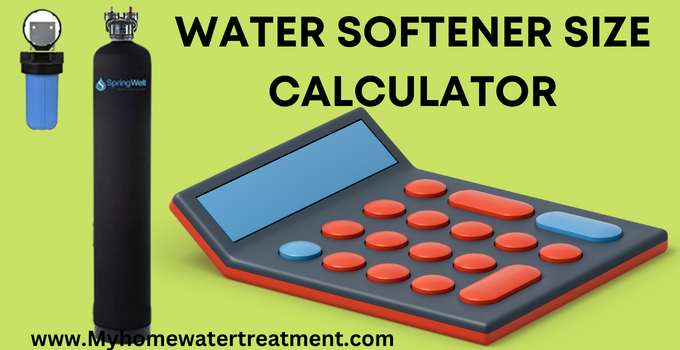
When sizing a water softener, the actual size you will need is dependent on many factors. For example: What is the average daily salt demand from your water-using appliances? How big is your home? What are your water quality parameters? Is your home located in a hard-water area?
| Image | Product | Details | Coupon Code | Price |
|---|---|---|---|---|
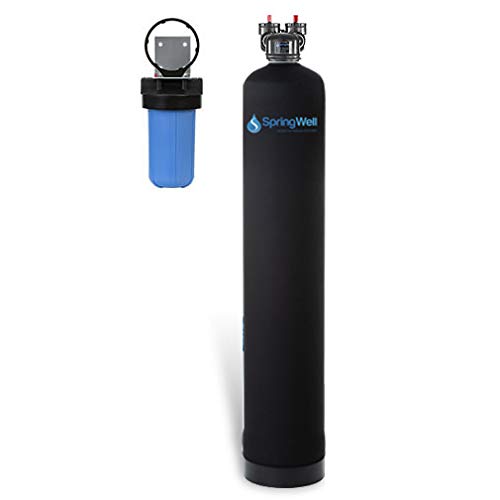 |
SALT-BASED WATER SOFTENER Springwell Water Whole House |
Type: Ion Exchange Grain Capacity: 32,000 – 80,000 grains Flow Rate: 11 – 20 GPM Warranty: Lifetime |
MHWT5 | Check Price |
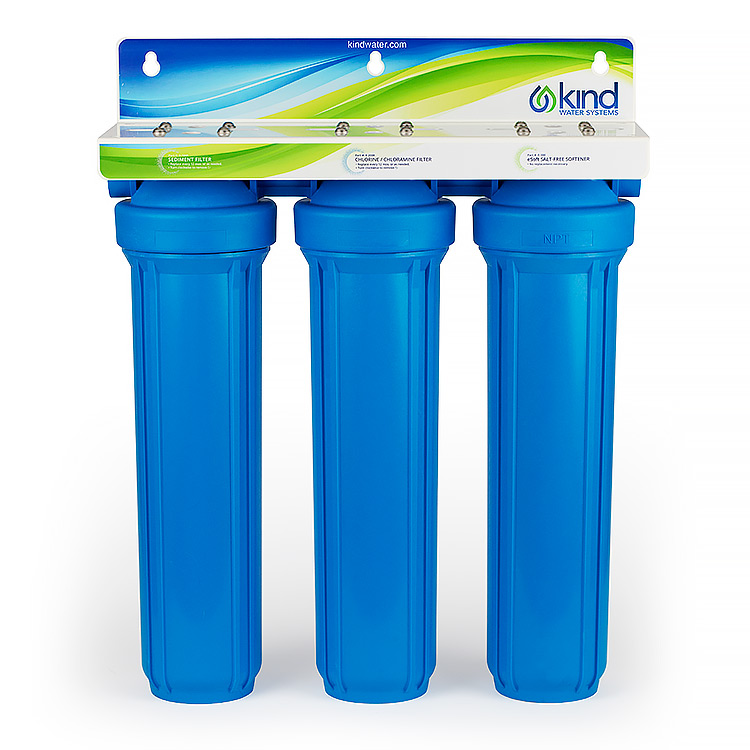 |
SALT-FREE WATER SOFTENER Kind Water Systems Whole House |
Type: Template Assisted Crystallization Grain Capacity: N/A Flow Rate: 15 GPM Warranty: Lifetime |
MHWT5 | Check Price |
0-3500 Grains per day removed = 24,000 grain capacity SEE MODELS THAT BEST MATCH
Calculate the water softener size for your home with this calculator. This handy tool will ask you a few questions about the flow rate of your water, the hardness level you want to achieve, and will then calculate the size of water softener you need to produce that result.
1 ppm = 1 mg/L and 1 gpg ≈ 17.12 ppm = 17.12 mg/L
Table of Contents
What do your results mean?
Note: Calculations are based upon your softener system regenerating on an average of every 7 days.
| If Your Daily Grain Requirements Are: | You Need a Water Softener With: |
| 0 – 3,500 Grains Per Day | 24,000 Grain Capacity |
| 3,501 – 4,500 Grains Per Day | 32,000 Grain Capacity |
| 4,501 – 5,750 Grains Per Day | 40,000 Grain Capacity |
| 5,751 – 6,850 Grains Per Day | 48,000 Grain Capacity |
| 6,851 – 9,150 Grains Per Day | 64,000 Grain Capacity |
| 9,151 – 11,500 Grains Per Day | 80,000 Grain Capacity |
| Image | Product | Details | Price |
|---|---|---|---|
 |
Springwell FutureSoft Salt-free Water Softener | Quantity of Tanks: Single TankSizes: Available in three sizes media Replacement: 6-9 months Warranty: Lifetime Warranty |
Check Price |
 |
Springwell Salt-Based Water Softener | Quantity of Tanks: Two TanksMedia Replacement:6-9 months Warranty: Lifetime Warranty |
Check Price |
 |
Springwell Whole House Lead and Cyst Removal System With Salt-Based Water Softener | Quantity of Tanks: Three TanksMedia Replacement:6-9 Warranty: Lifetime Warranty |
Check Price |
 |
Springwell Water Filter and Salt-free Water Softener | Quantity of Tanks: Two TanksMedia Replacement:6-9 months Warranty: Lifetime Warranty |
Check Price |
 |
Springwell Water Filter and Salt-Based Water Softener System | Quantity of Tanks: Three TanksMedia Replacement:6-9 months Warranty: Lifetime Warranty |
Check Price |
 |
2 in 1 Filter +Salt Softener Combo System | Quantity of Tanks: Two TanksMedia Replacement:6-9 months warranty: 650 mm |
Check Price |
Calculation Example: Hardness Measured at 140 ppm, Iron at 1 ppm
140 ppm / 17.12 = 8.18 gpg
8.18 gpg + 4 gpg (equals iron at 1 ppm) = 12.18 gpg (total hardness)
What is Water Softener Size Calculator?
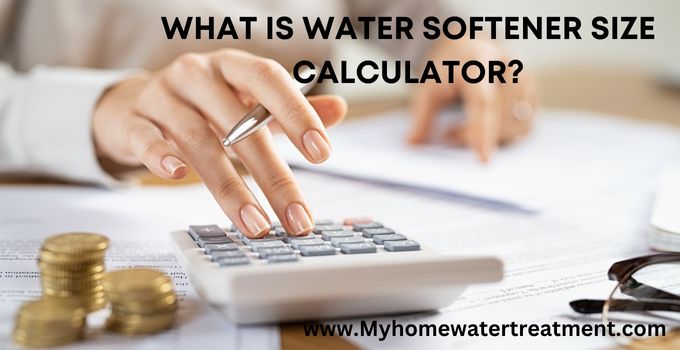
The water softener calculator is a tool that helps you determine the size of water softener needed for your home. The tool is based on an algorithm that takes into consideration the hardness of your water, how much water you use and how many fixtures are in your home.
It also allows you to estimate how much salt will be required to regenerate your unit. The calculator was designed by professionals with years of experience in this industry. It is simple to use and will give you a good idea of what kind of system you will need for your home.
Enter the number of people in your household, the average number of showers taken daily and the average length of showers, then choose the type of water softener that meets your needs.
Once you’ve selected your preferred brand, we’ll show you all the models available in your area and provide a detailed description of each one. You’ll even be able to compare models side-by-side, so you can compare features like flow rate, hardness capacity, salt consumption and more.
What factors affect water softener size calculator?
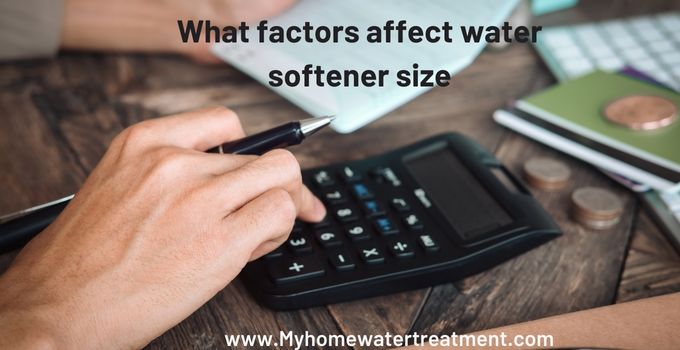
When you get a new water softener, it will come with two different sized tanks: one for the brine tank and one for the resin tank. The resin tank holds all of the salt that is used to soften your water, while the brine tank holds all of the saltwater mixture that is run through your system.
The size of these tanks can vary depending on how much water you use and how many people live in your home. If you have a large family or if you use a lot of water each day, then you may need a larger system than someone who lives alone or uses less water per day. There are also other factors that affect how big your system needs to be.
The main factors that affect how big of a water softener size calculator you need are:
Hardness
Hardness levels vary by region but they tend to be high in most areas of the US. Hardness is measured in grains per gallon (gpg) or milligrams per liter (mg/L). If your water has a hardness level of 20 gpg or more, then you should consider installing a whole house water softener. If it’s less than 10 gpg, then using an ion exchange tank may be sufficient enough for your needs.
Hardness Chart
| Classification | mg/L | ppm | gpg |
|---|---|---|---|
| Soft | 0 – 60 | 0 – 60 | 0 – 3.5 |
| Moderately hard | 61 – 120 | 61 – 120 | 3.56 – 7.01 |
| Hard | 121 – 180 | 121 – 180 | 7.06 – 10.51 |
| Very hard | >180 | >180 | >10.51 |
The amount of water being softened
A smaller unit can handle up to 10,000 gallons per day (GPD), while larger units can handle up to 40 GPD or more. If you have a large household with several showers going at once, consider getting a larger unit since each person will use more than 10 GPD each day.
The number of people using the softener
If there’s just one person using the softener, then a smaller unit would do just fine. For larger households with multiple users, however, get a bigger model so that everyone gets enough water when showering or bathing in their own bathrooms.
Your household’s needs
If you have a large family or tend to host many parties, then you may find yourself using more water than the average person does. If this is the case, then you will likely want to get a larger-sized unit so that it can handle all of this increased usage.
Your washing machine capacity
If you have a larger capacity washer, then chances are good that it will require more water in order for it to run efficiently and cleanly. This means that you will need a larger sized unit as well in order for it to effectively do its job.
How Much Water Do You Use?

The average American uses 100 gallons of water each day. That’s more than twice as much as the average person in Europe or Asia, and it doesn’t include water used for food production.
But that’s just an average, and it doesn’t tell us anything about how much water we use at home versus at work or school. This infographic from the EPA shows how much water is consumed by different sectors of society, including agriculture, manufacturing and energy production.
If you don’t have a meter or don’t want to install one (which we understand), here are some ways to get an estimate of your daily use:
- Multiply the number of people in your household times 75 gallons per person per day (for drinking, washing hands, and brushing teeth). For example, if there are 4 people in your house, multiply 4 x 75 = 300 gallons per day.
- Multiply the number of people in your household times 75 gallons per person per day (for showering or doing dishes) with hardness. For example, if there are 4 people in your house and the hardness in gpg is 2, multiply 4 x 75 x 2 = 600 gallons per day.
- Divide the total square footage of your home by 5-8 (depending on whether it’s an older or newer home). For example, if there are 1,500 square feet of living space in your home (including outdoor areas).
| Resin in Cubic Feet | Tank Dimensions (Ø x Height) | Maximum Grain Capacity |
|---|---|---|
| 0.75 | 8″ x 44″ | 15,000 |
| 1.0 | 9″ x 48″ | 20,000 |
| 1.5 | 10″ x 54″ | 30,000 |
| 2.0 | 12″ x 52″ | 40,000 |
| 2.5 | 13″ x 52″ | 50,000 |
| 3.0 | 14″ x 65″ | 60,000 |
What Is The Hardness Of Your Water?
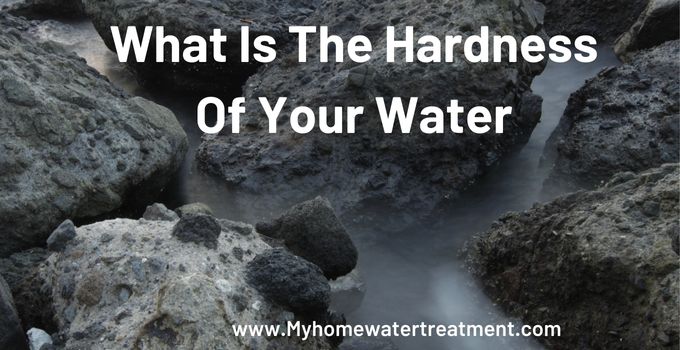
If you are looking for a way to soften your water, there are many options. One of the most popular ways is to use a deionized water softener.
Hardness is caused by minerals in the water, such as calcium and magnesium. Hardness levels can vary from place to place, but generally speaking, the harder the water, the more minerals it contains. While this may sound like a good thing, too much of certain minerals can cause problems for your plumbing system and other appliances in your home.
How To Test Your Water For Hardness
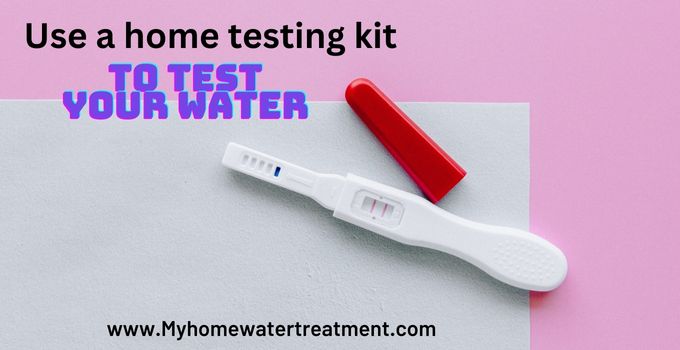
If you want to find out if you have hard water in your home, you can use a home testing kit to measure how much hardness is in your tap water. If you don’t want to buy a testing kit, you can also send off a sample of your tap water to an independent lab for testing.
How Often Does Your Softener Regenerate?
You may not realize it, but your softener regenerates at regular intervals. The regeneration process happens when your softener removes all of the water from the tank and then adds new salt.
The amount of time that passes before regeneration depends on how much water is in your softener and the hardness level of your water. If you have a large tank and your softener has to work harder, it will regenerate more often.
Softeners that use less salt also regenerate more frequently because they’re working harder to remove minerals from the water.
Regeneration times vary widely, depending on how much hardness is in your home’s water supply. A standard regeneration should take less than 20 minutes, but if you have particularly hard water, it could take much longer than that.
How to Size a water softener size calculator
The size of a water softener depends on the number of people in the household and how much water is used. In general, you’ll need to consider the amount of hardness in your water as well as the size of your family. You may also want to consider how much laundry you do, whether you have a dishwasher, and any other factors that could affect water usage.
Here’s what you need to know about sizing a water softener:
The first step in sizing a water softener is figuring out how hard your water is. Hardness affects both clothes washing and dishwashing because it makes soap less effective at removing dirt from clothing or food residue from dishes and glassware. If you have very hard water, it can also cause scum buildup in your shower or bathtub.
The next step is determining what type of system best suits your needs. There are two kinds of systems available: whole house and point-of-entry (POE). Whole house systems treat all of the water in your home before it enters any fixtures, while POE units filter only the incoming cold supply line before it enters the hot side of each fixture (like toilets and showers).
How Do You Know Which Type of Water Softener to Get?
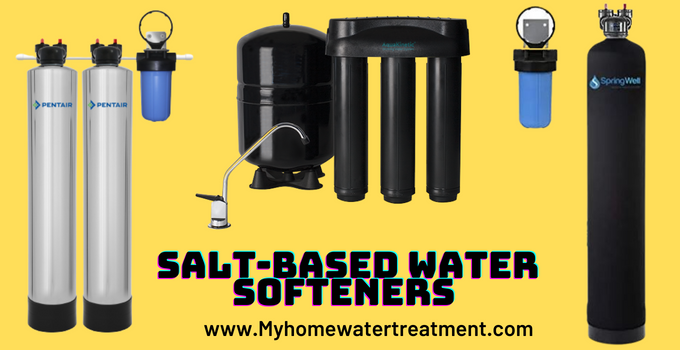
Water softeners are a popular appliance in many homes. They come in many different shapes and sizes, but they all do the same thing: soften water. When you use a water softener, you’ll notice that your clothes feel softer and more comfortable on your skin. You can also use less detergent when washing laundry because the soap dissolves more easily in soft water.
Water hardness is measured by the amount of minerals dissolved in the water. The most common minerals are calcium and magnesium, but there are many others as well. Water hardness can vary greatly depending on where you live and what type of soil is beneath your home or business.
The three main types of water softeners are salt-based, brine (salt-free) and ion exchange. Each has its own advantages and disadvantages based on your needs and budget.
There are three main types of water softeners in the United States: Salt-based, Alkaline and Water Softening Technology.
Salt-based Water Softeners use sodium chloride or potassium chloride to soften the water. These are usually the most cost-effective type, but they can cause problems for those with high blood pressure or other heart issues. The biggest problem with salt-based softeners is that they introduce sodium into your water supply. This is not an issue for most people, but it can cause problems for those with certain health conditions like heart failure, hypertension or kidney disease.
Alkaline Water Softeners use potassium carbonate (K2CO3) to soften water, which is a much better option for those who have high blood pressure or other heart issues because it doesn’t add any sodium to your water supply at all. The downside is that these systems tend to be a little more expensive than their salt-based counterparts and they also require more maintenance than salt systems do because K2CO3 has a tendency to clog up over time if it isn’t cleaned regularly.
Final Considerations with Water Softener Sizing

Water softeners work by removing hardness ions (mostly calcium and magnesium) from your water supply. These ions can build up on the inside of your pipes, leading to mineral deposits and increasing the risk of clogs, corrosion, and leaks. Water softeners also help prevent scale buildup on your showerheads and faucets.
The best way to determine how much water you need softened is by measuring your current usage over several months. You’ll need to measure how much water flows through the meter at a given time of day (i.e., when people are home or not). The average residential home uses anywhere from 10-20 gallons per person per day (GPPD).
Conclusion: water softener size calculator

Choosing the proper water softener size is important to ensure you are purchasing one that will work for your particular needs. While it’s always best to consult the manufacturer of your water treatment equipment or minerals, this calculator will provide a good estimation for the average size of a water softener needed to treat the water usage of an average household.
There’s a wide array of factors that all play a part in determining exactly how much water softening salt you’ll need to purchase. It all depends on your needs, of course. But with the right amount of effort and research, it’s entirely possible to find the right size softener for you. It’s entirely possible to find the right size softener for you.
And when you’ve found it, you don’t want to be left with any extra salt, or worse yet, no salt at all in your reservoir. The Ultimate Water Softener Size Calculator will help ensure that this never becomes an issue. By giving yourself the time and space needed for research, you can make sure that purchasing the softener for your home or business is as easy as possible.
Also Read: Springwell vs Pelican Water Softner Filter